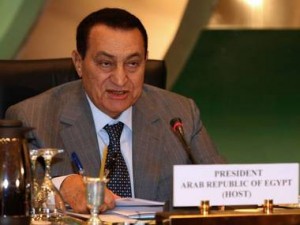BBC to apologise for airing Egypt documentary made by Mubarak partner Blog
Ceasefire Bites, Editor's Desk, New in Ceasefire - Posted on Saturday, February 11, 2012 9:21 - 0 Comments

The BBC is to issue an apology over its purchase and broadcasting of programmes on Egypt, Malaysia and other topics by a London TV company in the pay, to the tune of millions, to the very clients being featured in the programmes, including Mubarak’s regime, and the Malaysian government.
The revelations, exposed by an Independent investigation last year showed how “the BBC paid nominal fees of as little as £1 for programmes made by FBC Media (UK), whose PR client list included foreign governments and multinational companies.”
In particular:
“The company made eight pieces for the BBC about Malaysia while failing to declare it was paid £17m by the Malaysian government for “global strategic communications”. The programmes included positive coverage of Malaysia’s controversial palm oil industry.
The BBC also used FBC to make a documentary about the spring uprising in Egypt without knowing the firm was paid to do PR work for the regime of former dictator Hosni Mubarak.”
The BBC Trust’s Editorial Standards Committee uncovered 15 breaches of editorial guidelines, as well other breaches of rules on sponsorship in programmes shown by BBC World News.
As the Indy piece reports, the BBC Apology will state:
“A small number of programmes broadcast on BBC World News between February 2009 and July 2011 broke BBC rules aimed at protecting our editorial integrity. These rules ensure that programmes are free, and are seen to be free, from commercial or other outside pressures.”
The story doesn’t just affect Egypt and Malaysia. FBC, the TV company in question, was revealed by the Independent to be
“run by the former Financial Times journalist Alan Friedman and the CNN presenter John Defterios, was also making editorial programmes that featured FBC clients for the global business broadcaster CNBC, which suspended its FBC-made show World Business. Other FBC clients included the governments of Greece and Kazakhstan and companies like Microsoft. FBC also tried to suggest in its promotional literature it had “cultivated” key opinion formers, such as economist Jeffrey Sachs, as “ambassadors”. Sachs totally rejected the claim.”
The Independent‘s article can be read here.


Leave a Reply